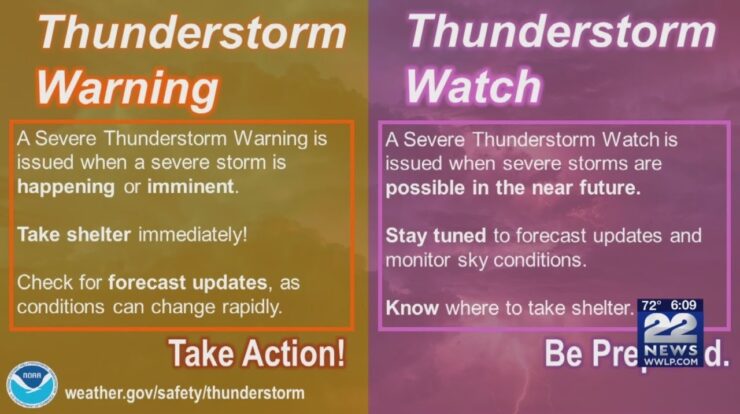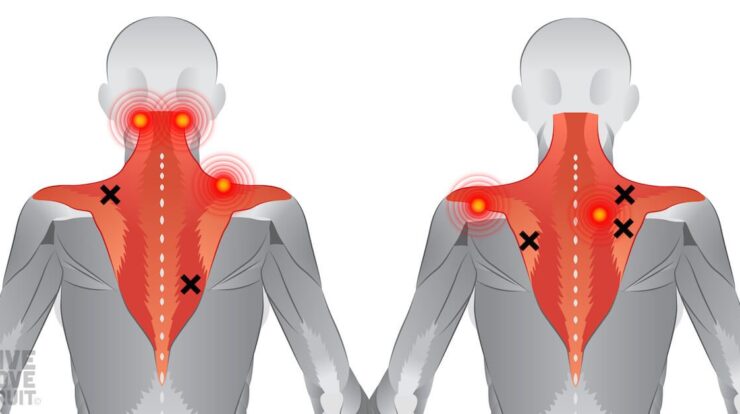
Is a watch or warning worse? When it comes to emergency alerts, understanding the difference between these two critical notifications can be the key to staying safe. In this comprehensive guide, we delve into the realm of watches and warnings, exploring their distinctions, severity, and recommended response actions to help you make informed decisions during times of potential danger.
Catch the electrifying action of bare-knuckle fighting with how to watch bare knuckle fighting . Experience the raw intensity as fighters square off with nothing but their fists. Dive into the world of high-stakes boxing and witness the adrenaline-pumping matches.
From wildfires to hurricanes, emergencies come in all shapes and sizes. Knowing how to interpret these alerts can make all the difference in safeguarding your life and property.
Watches and Warnings: A Guide to Understanding and Responding

In the realm of weather forecasting, timely and accurate alerts are crucial for protecting lives and property. Watches and warnings are two essential types of alerts issued by meteorological agencies to convey the potential for hazardous weather conditions.
Definition and Distinction
A watch is issued when conditions are favorable for the development of severe weather, but the timing and location are still uncertain. It serves as an early heads-up, giving people time to monitor the situation and prepare for potential impacts.
In contrast, a warning is issued when severe weather is imminent or already occurring. It provides specific information about the location, timing, and potential severity of the hazard, urging immediate action to protect life and property.
- Watch:Favorable conditions for severe weather, but timing and location uncertain.
- Warning:Severe weather is imminent or already occurring, immediate action required.
Severity and Consequences
Watches generally indicate a lower level of severity compared to warnings. However, ignoring a watch can still lead to serious consequences if severe weather does develop.
Warnings, on the other hand, signify a more immediate and dangerous threat. Ignoring a warning can have devastating consequences, including loss of life, property damage, and disruption of essential services.
Timing and Response
Watches are typically issued several hours to days in advance, providing ample time for preparation. When a watch is issued, it’s important to stay informed about the developing weather situation and follow any recommended precautions.
Warnings are typically issued within an hour or less of the expected onset of severe weather. Upon receiving a warning, it’s crucial to take immediate action to seek shelter, secure loose objects, and follow the instructions of local authorities.
Issuing Authorities
Watches and warnings are issued by designated meteorological agencies in each country or region. These agencies monitor weather patterns and use advanced forecasting models to determine the potential for severe weather.
In the United States, the National Weather Service (NWS) is responsible for issuing watches and warnings. The NWS has a network of weather stations, radar systems, and satellites to collect and analyze weather data.
Public Perception and Understanding
Public perception and understanding of watches and warnings can vary. Some people may become overly alarmed by watches, while others may underestimate the severity of warnings.
Witness the clash of titans with watch lakers vs nuggets . Two powerhouse teams go head-to-head in a battle for supremacy. Tune in for expert analysis, thrilling plays, and the electric atmosphere that surrounds every Lakers-Nuggets matchup.
It’s important for the public to be educated about the difference between watches and warnings and to understand the appropriate response actions for each type of alert.
Effectiveness and Evaluation, Is a watch or warning worse
Watches and warnings have proven effective in mitigating risks and saving lives. They provide timely information to the public, allowing them to make informed decisions about their safety.
However, there is always room for improvement. Meteorological agencies continuously evaluate the effectiveness of their watch and warning systems and make adjustments as needed to ensure the best possible protection for the public.
Final Wrap-Up: Is A Watch Or Warning Worse
Understanding the nuances between watches and warnings is crucial for effective emergency preparedness. By staying informed about these alerts, you empower yourself to make informed decisions that can protect yourself and your loved ones from harm. Remember, every second counts when disaster strikes, and knowing the difference between a watch and a warning can be the key to staying safe.
Don’t miss the highly anticipated showdown between the Lakers and Nuggets with watch lakers vs nuggets . Two of the league’s top teams face off in a game that promises to deliver excitement, drama, and unforgettable moments. Prepare for a basketball spectacle that will leave you on the edge of your seat.
FAQ Explained
What’s the main difference between a watch and a warning?
Lakers fans, gather around for the ultimate basketball experience with lakers watch . Join the Lakers faithful as they cheer on their team, witness the incredible plays, and revel in the excitement of every game. Get ready for an unforgettable basketball experience.
A watch indicates that conditions are favorable for a hazardous event to occur, while a warning means the event is imminent or already happening.
What should I do if I receive a watch?
Stay informed about severe weather events with difference between watch and warning . Understand the critical distinction between a watch and a warning, and know what actions to take to stay safe during potential storms. Prepare yourself with the knowledge to protect your loved ones and property.
Stay informed about the situation, monitor weather updates, and be prepared to take action if a warning is issued.
What’s the best way to respond to a warning?
Follow the instructions provided by authorities, evacuate if necessary, and take steps to protect yourself and your property.





